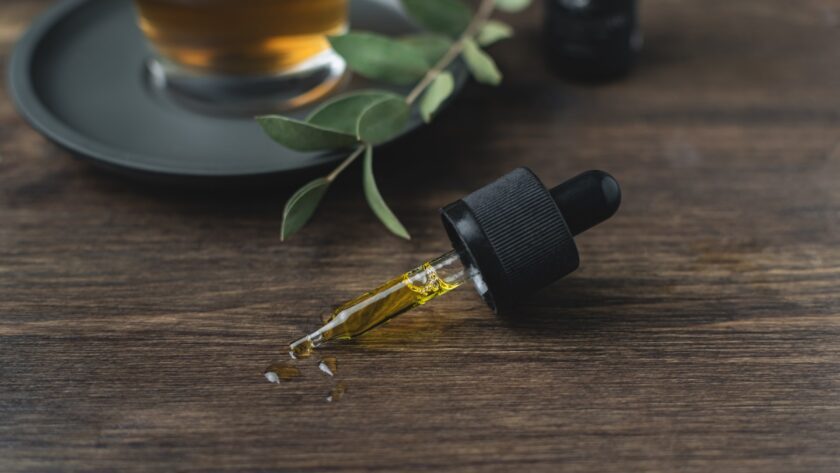We’re all familiar with the cannabinoid Delta-9 THC; it’s the key ingredient in marijuana strains that makes people high and has done so for thousands of years. You may have heard about delta-8, a cannabinoid related to delta-9 but less potent that has gained popularity in the last few years.
A cannabinoid known as delta-10 is getting popular just like plain jane delta 8, which further adds to the uncertainty. Honestly, It’s challenging to stay up with cannabis trends and every product launch. However, you can get your favorite and new products from its hemp.
What is delta-10?
Delta-10 is a cannabinoid found in the cannabis plant at trace level. It can get you high, just as conventional THC (delta-9), although less potent. That makes it comparable to delta-8, a lighter cannabinoid than conventional THC.
Delta-10 and delta-8 are both typically made from hemp-derived CBD. However, very little research has been done on the same. Delta 10 THC works through a specific mechanism to offer some action in the human body. It is likely to interact with our endocannabinoid system like other THC compounds. Delta 10 might also interact with the CB1 receptors at a high concentration.
Cannabidiol is commonly found in vape carts, gummies, and other edibles and delivered to specific states.
What is Cannabis?
Cannabis is a substance sourced from the hemp plants Cannabis sativa and Cannabis indica. THC (delta-9 tetrahydrocannabinol) is the principal active element in cannabis.
Cannabis is an antidepressant. Antidepressant medications do not always cause depression. Instead, they slow down the central nervous system’s activity and the transmission of impulses between the brain and the body. When significant amounts of cannabis are consumed, it can cause hallucinatory effects.
Legality
Even though delta 9 THC is outlawed in many states, delta 8 THC and delta 10 THC are still legal on the federal level and in most parts of the country, even where recreational marijuana is prohibited.
On a federal level, hemp containing less than 0.3 percent THC (delta 9) by weight is allowed to grow, sell, and possess, according to the Federal Farm Bill of 2018. Any hemp-derived chemicals, such as delta 8 THC and delta 10 THC, are included.
On a state level, both delta 8 and delta 10 are banned in various regions.
Cost
THC with a delta of 8 is substantially less expensive than THC with a delta of 10. Although delta 8 is found in significantly more hemp plants, the price difference isn’t due to its availability; both are isomerized from CBD.
Because Delta 8 THC is more prevalent right now, it has a much broader market. It’s simple enough for manufacturers to mass-produce. Delta 10 THC, on the other side, has a modest fanbase at the moment. Because there are fewer customers, there are fewer manufacturers, which means less competition and, as a result, higher pricing.
Once both cannabinoids have built a similar user base and delta 10 can be mass-produced, the pricing of these two cannabinoids will likely equalize.
Market Availability
As previously said, delta-8 THC is currently more common in the United States. A quick trip to a dispensary, and you will mostly see THC products like these D8 pre-rolls for sale. This is because there are more delta 8 producers, it is more widely available.
Because of the prominent market, vendors and retailers don’t have to worry about delta 8 THC goods taking up shelf space and not selling.
Delta 10 THC is produced by a small number of businesses, making it scarce. Fewer suppliers and retailers carry it since every inch of shelf space is valuable, and selling more popular products will result in more sales.
Dosage
The recommended dosage for delta 8 and delta 10 THC is the same: 25 to 50 mg. Some people may experience the desired benefits with as little as 10 mg, while others may require more than 50 mg.
Your tolerance and prior experience ultimately determine the dose. Any psychoactive substance is more potent in the hands of a novice than in the hands of a seasoned user.
Other parameters, such as weight and size, must also be addressed.
Novices should start small and gradually increase their dosage until they reach their desired level. For a newbie or someone with a poor tolerance, a 10-20 mg dose is ideal. An average amount for a habitual user is 20-50 mg. An experienced or frequent THC analog user will typically consume 50-100 mg.
Chemical Structure
THC analogs, such as delta 8 THC and delta 10 THC, are chemically similar to regular delta 9 THC.
On a chemical level, the fundamental distinction is placing the double bond in the carbon chain. As the labels suggest, the double bond occurs on the ninth carbon bond in delta 9 THC, the eighth in delta 8 THC, and the tenth in delta 10 THC.
These minor changes have an impact on how cannabis interacts with the cannabinoid receptors in your body. Delta 9 THC binds primarily to CB1 receptors, whereas delta 8 THC and 10 THC bind to CB2 receptors.
The psychoactive effects of delta 8 and 10 are less potent than delta 9 due to this interaction with CB2 receptors.
What Should I Buy?
If you’re seeking a soothing, uplifting, or psychoactive experience but can’t or won’t use delta 9 THC, delta 8 and delta 10 THC are great alternatives.
Many people prefer delta 8 and delta 10 analogs since they are more generally legal and less likely to elicit the adverse side effects of delta 9 THC.
Delta 8 THC is ideal for those who wish to feel calm and ease anxiety or stress. Delta 8 is a more peaceful and soothing cannabinoid than the others.
Delta 10 THC is your best pick if you’re searching for an uplifting and somewhat euphoric psychoactive experience. The majority of users agree that delta 10 is best used in the morning or mid-day.
If you’re not sure which you prefer, try both and see which works best for you. Some individuals believe they will pick one over the other, only to discover the opposite is true.
Which One is Better?
Both are excellent choices, which is preferable depending on the effects you want to achieve.
Try delta 10 THC if you’re looking for something stimulating that will help you focus. Use delta 8 THC if you’re looking to unwind for the day.
Purchase from a reputable provider who thoroughly evaluates each product for the most significant outcomes. The only way to know you’re getting a good product is to have it tested by a third party. These merchants may easily be found on the internet.
Aside from that, delta 8 and 10 have similar potential and can be readily incorporated into your daily routine.




